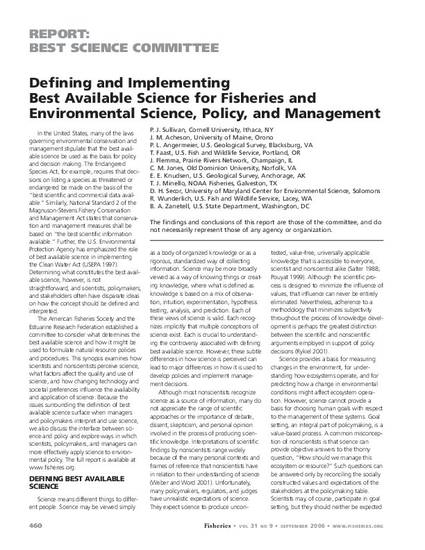
In the United States, many of the laws governing environmental conservation and management stipulate that the best available science be used as the basis for policy and decision making. The Endangered Species Act, for example, requires that decisions on listing a species as threatened or endangered be made on the basis of the "best scientific and commercial data available." Similarly, National Standard 2 of the Magnuson-Stevens Fishery Conservation and Management Act states that conservation and management measures shall be based on "the best scientific information available." Further, the U.S. Environmental Protection Agency has emphasized the role of best available science in implementing the Clean Water Act (USEPA 1997). Determining what constitutes the best available science, however, is not straightforward, and scientists, policymakers, and stakeholders often have disparate ideas on how the concept should be defined and interpreted. The American Fisheries Society and the Estuarine Research Federation established a committee to consider what determines the best available science and how it might be used to formulate natural resource policies and procedures. This synopsis examines how scientists and nonscientists perceive science, what factors affect the quality and use of science, and how changing technology and societal preferences influence the availability and application of science. Because the issues surrounding the definition of best available science surface when managers and policymakers interpret and use science, we also discuss the interface between science and policy and explore ways in which scientists, policymakers, and managers can more effectively apply science to environmental policy.
Available at: http://works.bepress.com/james_acheson/2/
